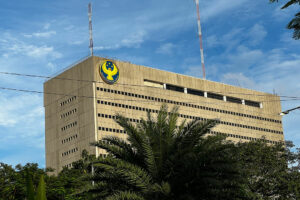A RURAL BANK that wants to convert its existing permit is the second applicant for a digital banking license following the lifting of the moratorium on the entry of new players into the sector, a senior Bangko Sentral ng Pilipinas (BSP) official said.
“They (rural bank) are almost done. Maybe within the next two to three months. They’ve already submitted their application. They’re now just completing requirements,” BSP Deputy Governor Chuchi G. Fonacier told reporters on Tuesday.
Ms. Fonacier earlier said a Europe-based digital bank has already applied for a license to enter the Philippine market. This lender is looking to target underbanked sectors, she said.
The BSP in January lifted a three-year moratorium on the grant of digital banking licenses, allowing four new players to operate in the country. These can either be new applicants or banks that will convert their existing license to a digital one.
This would bring the maximum total players in the sector to 10, joining Tonik Digital Bank, Inc.; GoTyme Bank of the Gokongwei group and Singapore-based Tyme; Maya Bank of Voyager Innovations, Inc.; Overseas Filipino Bank (OFBank), a subsidiary of Land Bank of the Philippines; UNObank of DigibankASIA Pte. Ltd.; and UnionDigital Bank, Inc. of Union Bank of the Philippines, Inc.
The central bank has said the new applicants must “bring something new to the table” and offer innovative products to better reach underserved and untapped markets. They will also undergo a rigorous licensing process that will evaluate their value proposition, business models, and resource capabilities.
The BSP has also said that they may require financial institutions that already operate like online banks, or those that have a neobank model, to upgrade their licenses.
“Other players (with neobank models) do not want to apply for digital bank licenses. But for us, if your business model is digital-centric or akin to a digital bank, we will encourage you to convert your license,” Ms. Fonacier said.
“We just really want to level the playing field. You can’t have the best of both worlds.”
The BSP defines a digital bank as an institution that offers financial products and services that are processed end-to-end through a digital platform or electronic channels with no physical branch.
Neobanks offer banking services via online platforms and electronic channels. Existing thrift, rural, and cooperative banks that primarily offer financial products and services processed via digital channels can do so under an Advanced Electronic Payments and Financial Services license.
Meanwhile, the BSP has separate licensing and prudential requirements for digital banks as they are treated as complex banks, like universal and commercial lenders.
Ms. Fonacier added that only two of the six operating digital banks in the country are now in the black. She said online banks backed by large parent companies are more profitable as they have ample capital support and strong ecosystems.
“The others, based on their forecasts in their business models, they expect to be profitable in five years,” she said.
Based on available data, OFBank booked a net income of P50.34 million in 2023, a turnaround from 2022’s P33.63-million net loss.
UnionDigital Bank likewise posted a net income of P155.31 million in 2023 versus the P447.14-million net loss it recorded the year prior.
Latest BSP data showed that the digital banking sector posted a P1.04-billion net loss as of end-March, narrowing from the P2.07-billion loss seen a year prior.
The industry has been in the red since the BSP began consolidating data from the sector starting March 2023.
In 2024, the sector’s combined net loss widened to P7.03 billion from P4.38 billion in 2023. — A.M.C. Sy
